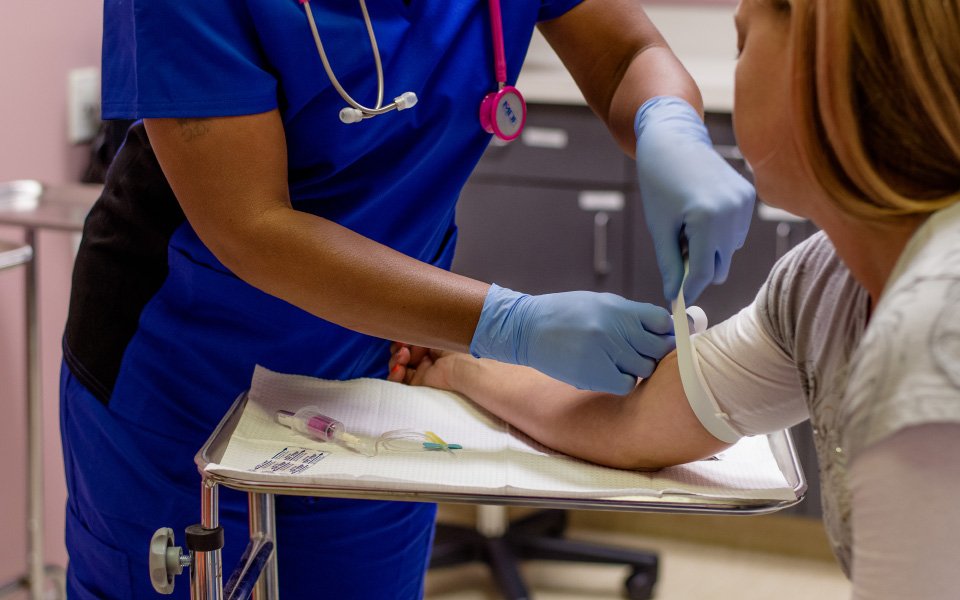Vital Variables to Think About When Choosing one of the most Appropriate Medical Institution Curriculum for You
Picking one of the most suitable clinical institution curriculum is a critical decision that can significantly affect your instructional trip and future occupation path. As aspiring physician, the selection of educational program should straighten with your personal learning design and occupation ambitions. Nevertheless, past these initial considerations, numerous vital aspects come into play when making this choice. By discovering the subtleties of training methodologies, educational program adaptability, and medical exposure possibilities, a much more comprehensive understanding of what makes an educational program suitable for you arises. Let's explore these essential aspects that can shape your clinical education and eventually, your specialist trajectory.
Personal Understanding Style

Medical colleges that provide varied teaching approaches and resources can fit numerous discovering designs, fostering a inclusive and vibrant instructional environment. Inevitably, understanding personal discovering choices empowers trainees to make enlightened decisions regarding their clinical education and learning, setting a solid structure for their future jobs in healthcare.
Occupation Purposes Placement

Furthermore, straightening job purposes with the medical school curriculum can additionally improve motivation and engagement throughout the educational trip. When pupils see the direct relevance of their coursework to their future career, they are extra most likely to stay specialized and focused to their studies. For that reason, when picking a clinical school educational program, it is important to carefully think about exactly how well it aligns with one's job goals to ensure a successful and meeting expert course.
Teaching Methodologies
Taking into consideration the positioning of job goals with the picked medical college curriculum, an exam of the training methodologies employed ends up being critical in shaping the finding out experience. The performance of a clinical college curriculum heavily relies upon the mentor methodologies used by the establishment. Various mentor approaches, such as lectures, little team conversations, problem-based knowing, simulation-based training, and hands-on scientific experience, can significantly impact exactly how well pupils preserve and grasp info.
Lectures are a typical but still typically utilized approach for supplying web content to a large group of students effectively. Little team conversations foster cooperation, critical thinking, and communication skills among like it students. Problem-based knowing motivates active involvement, self-directed discovering, and analytic capacities. Simulation-based training permits pupils to exercise scientific abilities in a regulated atmosphere before communicating with genuine individuals. Hands-on scientific experience uses a direct understanding of client care and medical practices.
When selecting a clinical institution curriculum, striving students should take into consideration the training methods utilized to guarantee that their learning choices and staminas line up with the educational approach of the establishment.
Educational Program Versatility
When evaluating clinical college programs, evaluating the extent of curriculum versatility is vital for potential pupils looking for a tailored instructional experience. Educational program versatility describes the level to which trainees can personalize their learning courses within the medical school educational program. An educational program that supplies versatility allows trainees to pursue their interests, concentrate on locations where they require more assistance, and participate in discovering experiences that straighten with their profession objectives.

Prospective medical trainees should take into consideration exactly how a medical school's educational program adaptability lines up with their learning choices, career goals, and individual objectives. By choosing a program that provides the ideal equilibrium of structure and flexibility, trainees can maximize their instructional experience and prepare themselves for successful professions in medicine.
Professional Direct Exposure Opportunities
Discovering the functional application of clinical understanding, medical exposure possibilities play a critical duty fit a detailed medical education. These possibilities supply trainees with important hands-on experience in real medical care setups, allowing them to link the void between concept and technique. When thinking about medical college curricula, the quality and amount of medical exposure have to be thoroughly evaluated.
Reliable scientific exposure must provide a varied variety of experiences throughout different specialties, making sure that students are revealed to different medical circumstances and individual demographics. Exposure to outpatient centers, inpatient wards, surgical movie theaters, and emergency divisions can help trainees create an all-round understanding of different aspects of medical care shipment. In addition, opportunities for community-based treatment and interactions with click reference underserved populations can cultivate a deeper recognition for the social determinants of health and wellness.
In addition, the presence of encouraging professors and mentors throughout these clinical experiences can substantially boost the knowing procedure. Professors guidance and useful comments can aid students assess their scientific encounters, determine locations for renovation, and boost their decision-making capacities and medical abilities (Northeast Medical Institute CNA Classes Near me Stamford). On the whole, robust clinical exposure chances are crucial click here for more info for preparing future physicians to deliver high quality individual treatment properly
Conclusion
To conclude, when picking a clinical school curriculum, it is important to consider your individual learning design, alignment with career goals, showing methods, educational program adaptability, and clinical exposure opportunities. These elements play an important duty in establishing the most suitable program for your educational and professional growth. Ensure to thoroughly evaluate each aspect to make an educated decision that will best support your growth in the clinical area.
Comprehending one's personal understanding design is vital when choosing a medical college educational program. By determining one's learning design early on, striving medical pupils can purposefully select an educational program that provides to their strengths, inevitably improving their learning experience and scholastic success.
When examining medical college programs, examining the extent of educational program versatility is essential for possible trainees looking for a tailored instructional experience. Curriculum adaptability refers to the degree to which pupils can customize their learning paths within the clinical institution educational program.In final thought, when picking a medical college curriculum, it is crucial to consider your personal understanding style, placement with career goals, teaching methods, educational program versatility, and professional exposure chances.